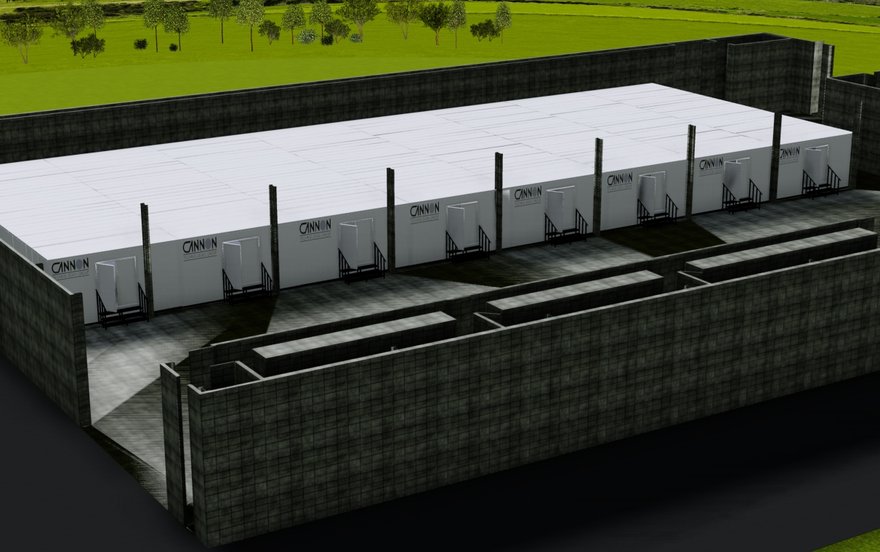Cannon Technologies has added to its range of flexible infrastructure systems with the T4 modular data center pod.
The new pods cut any customer’s initial investment in a data center by half and lets them pay as they grow, Cannon claims.
The systems are designed to be commissioned and built quickly, with a lead times of 8 to 12 weeks from the order date to delivery at the customer’s site.
The typical customer will want a 30 to 50 rack T4 modular data center pod, according to Cannon, but these are building blocks that can be quickly aggregated together if and when a data center needs to expand.
The vendor quantified the 50% initial investment saving on the fact that the T4 modules can be assembled on-site using hand tools.
Most modular data centers, according to Cannon, have to be pre-built in factories and loaded by crane off the back of a flatbed truck.
In addition to a cost saving on crane hire and construction, Cannon claims it can eliminate the costs associated with dust, noise and disruption of other types of data center assembly.
Though modular and easy to assemble, the units can be configured to Tier III or Tier IV standards with options for within row cooling (WIRC) units to help meet targets for low power usage effectiveness (PUE) ratings.
The units can stacked two high and adapted to work around obstacles such as columns or ducts.
In theory the T4 pods can be used almost anywhere, including underground car parks, airport hangars, warehouses and even roofs, according to Cannon.
Once built, they can be dissembled and moved if necessary or even sold.
Cannon Technologies head of data center solutions Mark Hirst said the point of the T4 range is that it helps enable clients to avoid big up front investment and works around the variables of capacity and available space.
“This removes the financially damaging implications of expensively equipped but underused data center space – a scenario which is all too common,” Hirst said.

